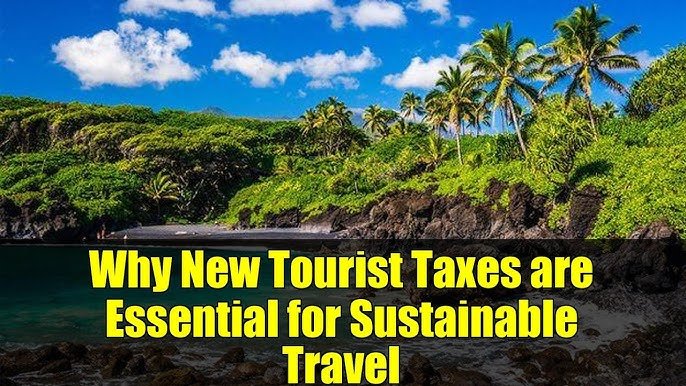Climate-Focused Tourist Taxes: A New Strategy to Protect Destinations
Tourists may soon pay a little more on their vacations, but it’s for a good reason. Around the world, a growing number of places are introducing climate-focused tourist taxes to help protect the environments that attract visitors in the first place.

From Hawaii to Greece, these small fees are funding wildfire recovery, coastal protection, and other essential efforts. While some travellers may balk at higher prices, many experts say these charges are a smart step toward sustainable tourism.
Hawaii’s Climate-Focused Tourist Tax: The First Green Fee in the U.S.
After wildfires devastated Maui in 2023, Hawaii introduced the United States’ first tourist tax tied directly to climate recovery. The Green Fee adds 0.75% to hotel bills and aims to raise $100 million annually. Funds will go toward wildfire recovery, reef restoration, and climate adaptation projects beginning in 2026.
Hawaii’s leaders say it’s about more than money—it’s a shared responsibility to care for the islands’ fragile ecosystems.
Climate-Focused Tourist Taxes in Greece, Bali, and Maldives: A Growing Trend
Other destinations are also rolling out climate-related travel fees:
- Greece replaced its overnight stay tax with the Climate Crisis Resilience Fee. Travellers now pay up to €20 extra depending on location, season, and hotel class. Funds will improve disaster preparedness and restore ecosystems.
- Bali introduced a one-time 150,000 rupiah (approx. £6.88) environmental fee for international tourists in 2024.
- The Maldives doubled its nightly Green Tax in 2025 to $12 per visitor. The money supports coastal resilience and waste management.
- New Zealand raised its International Visitor Levy to NZD $100. Revenues are used for trail upgrades and sustainable infrastructure.
These taxes are generally small in comparison to the cost of a full trip, but their impact is growing.
Transparency in Climate-Focused Tourist Taxes Is Key to Gaining Trust
Experts agree that these fees will only work if people trust how the money is spent. Countries like New Zealand and the Maldives lead the way in transparency. They publish detailed reports showing exactly how funds are allocated and what projects they support.

For example, New Zealand uses its levy to repair popular trails, build climate-resilient infrastructure, and support community conservation efforts.
Most Tourists Support Sustainable Travel
Recent global surveys show that travellers are open to paying more—if the money is used responsibly. In Booking.com’s 2024 Sustainable Travel Report, 75% of travellers said they want to travel more sustainably, and 71% said they hope to leave destinations better than they found them.
Many, like Japanese visitor Maho Tanaka, say the climate fee in Hawaii is a reasonable cost for protecting beaches and forests.
Rethinking the Social Contract of Tourism
Tourism has often been seen as a one-way exchange—visitors take memories, while locals deal with the impacts. That’s beginning to change.

By introducing climate-focused tourist taxes, destinations are inviting travellers to take part in preserving the places they love, rather than just consuming them. These taxes represent a shift toward collaboration, not extraction.
The Future of Travel: Sustainability by Default
Tourism experts say that sustainability should be built into every part of the travel experience—not just added as a fee. When sustainable practices are standard, travellers won’t have to think twice. They’ll naturally support the environment and communities they visit.
As climate challenges grow, these modest fees may become the new normal—and that might just be a good thing for everyone.




